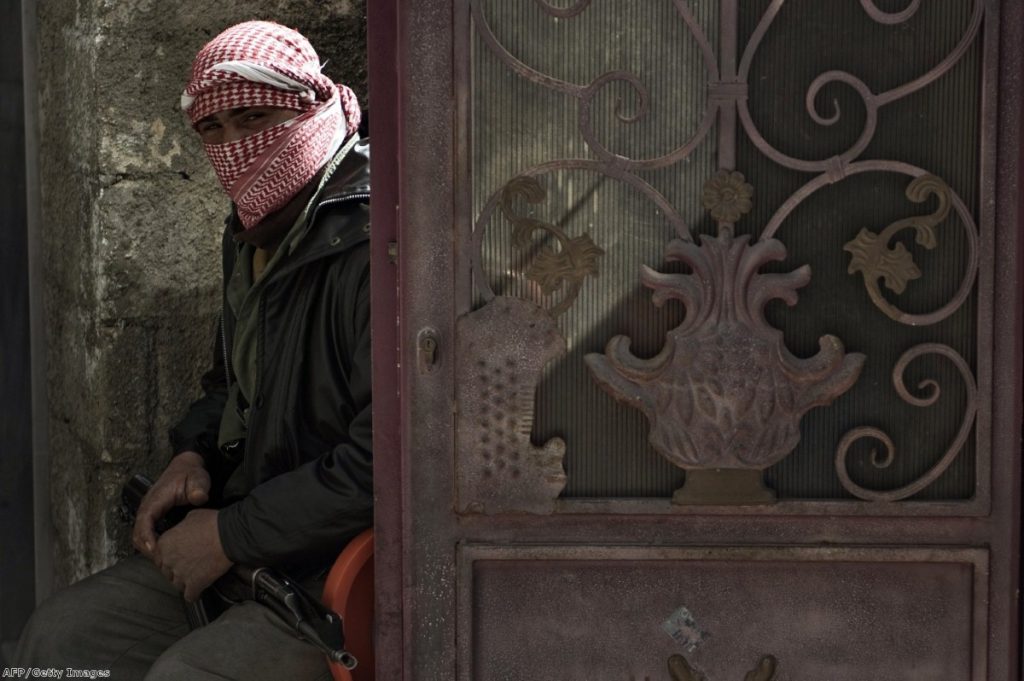UK and France hustle EU into dropping Syria arms embargo
Britain could supply arms to Syrian moderates in the future, following a diplomatic victory over European Union opponents yesterday.
The UK and France succeeded in getting their way around the conference table despite opposition from the vast majority of EU member states to the dismantling of the continent's arms embargo on Syria.
British and French diplomats' calls for more flexibility in providing military equipment to the Syrian National Coalition appeared to be getting nowhere as talks dragged on.
But the looming expiration this Friday of the existing set of measures, including the current block on the provision of arms to Syrian moderates, meant most EU foreign ministers had to accept the demise of the arms embargo to preserve the other sanctions after 13 hours of negotiations.


"It was important for Europe to send a clear signal to the Assad regime that it has to negotiate seriously, and that all options remain on the table if it refuses to do so," foreign secretary William Hague, who led the negotiations for Britain, said afterwards.
"Tonight EU nations have done just that."
Other foreign ministers complained bitterly about the British and French strongarming. Austrian foreign minister Michael Spindelegger, who had earlier insisted "we are a peace community and we would like to stay as a peace community", grumbled afterwards: "I'm a little annoyed – it's regrettable we haven't found a common position."
Britain and France have agreed not to supply arms to Syria immediately as the international committee pushes for major peace talks in Geneva, which could take place next month.
Hague added: "This does not mean that we have made any decision as the United Kingdom to send arms to the National Coalition, but we now have the flexibility to respond in the future if the situation continues to deteriorate and if the Assad regime refuses to negotiate."
Richard Ottaway, chair of the Commons' foreign affairs committee, told Politics.co.uk it was too early to say whether Britain should arm Syrian moderates.
"I agree with the decision to lift the embargo as we don't want the hands of policymakers to be tied, but only ministers and their security advisers have really got the key information on the ground and only they can make the decisions about whether rebels can be armed," he commented.
Ottaway rejected the suggestion that Britain would pay a heavy diplomatic price for its posturing on the issue.
"Britain is a leading member of Nato and a member of the security council of the United Nations. It is countries like Britain and France who do have to take the lead on these things," he added.
"Diplomacy is a hard-nosed business but in the need I think these countries will come to realise that the right decisions have been made."
The UK's enthusiasm for arming Syrian moderates places itself firmly alongside US senator John McCain, the former Republican presidential candidate who lost to Barack Obama in 2008.
He visited Syrian rebels over the weekend as he stepped up his call for the US to provide lethal aid to the opposition. Obama opposes such a move on the grounds that the arms could fall into the hands of terrorists associated with Al-Qaida.
Over 80,000 people have lost their lives in Syria since the conflict began.

